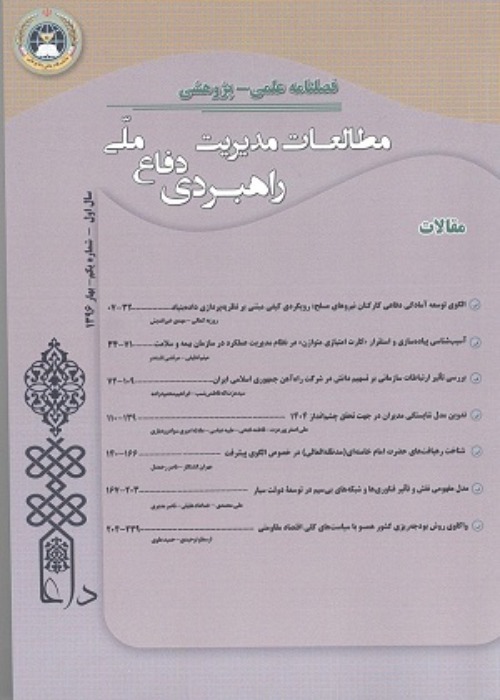Cooperative sector's economy (doctrine, goals and policies)
The historical evolution of co-operation, in the late eighteenth century, led the communities to cooperate and cooperate in economic affairs, seeking to reduce their incomes, expand poverty and unemployment, and deepen the class divide caused by the industrial revolution. Although the cooperative has long been considered and emphasized in Iranian culture and Islamic teachings, but economic activity in the form of cooperative organizations is about 80 years old and in its relatively short period of time, witnessed many ups and downs in three areas; the original contains rules and regulations, structure and execution. This upward and downward path is the result of the lack of a coherent model for organizing, managing and developing the cooperative sector of the country from the beginning. As management in this area is sometimes tangible, relevant and instrumental. The high status of the cooperative economy in the constitution, the emphasis of the late Imam Khomeini on the participation of all people in the administration of the country and the special attention of the leader to economic progress with justice, the main concern of this research is the pursuit of doctrine Goals and policies of the Supreme Leader. To formulate this research, various methods of qualitative research including content analysis and the analysis of the discourse of the late Imam Khomeini and Supreme Leader have been used based on the fundamental theory method (Grounded theory). According to the results of the research, emphasis is placed on Imam Khomeini and Leadership doctrine, poverty eradication, pivotal justice, economic independence, economic development based on justice, and the centrality of Islamic values in the administration of affairs. In terms of goals, the realization of Islamic economics, the development of social justice, increasing public participation in the economy, creating employment and increasing the share of the cooperative sector. Policies include empowerment, culture making, anti-renegade and corruption, knowledge-based economy, the use of committed and expert human resources and the popularization of economics.
- حق عضویت دریافتی صرف حمایت از نشریات عضو و نگهداری، تکمیل و توسعه مگیران میشود.
- پرداخت حق اشتراک و دانلود مقالات اجازه بازنشر آن در سایر رسانههای چاپی و دیجیتال را به کاربر نمیدهد.


